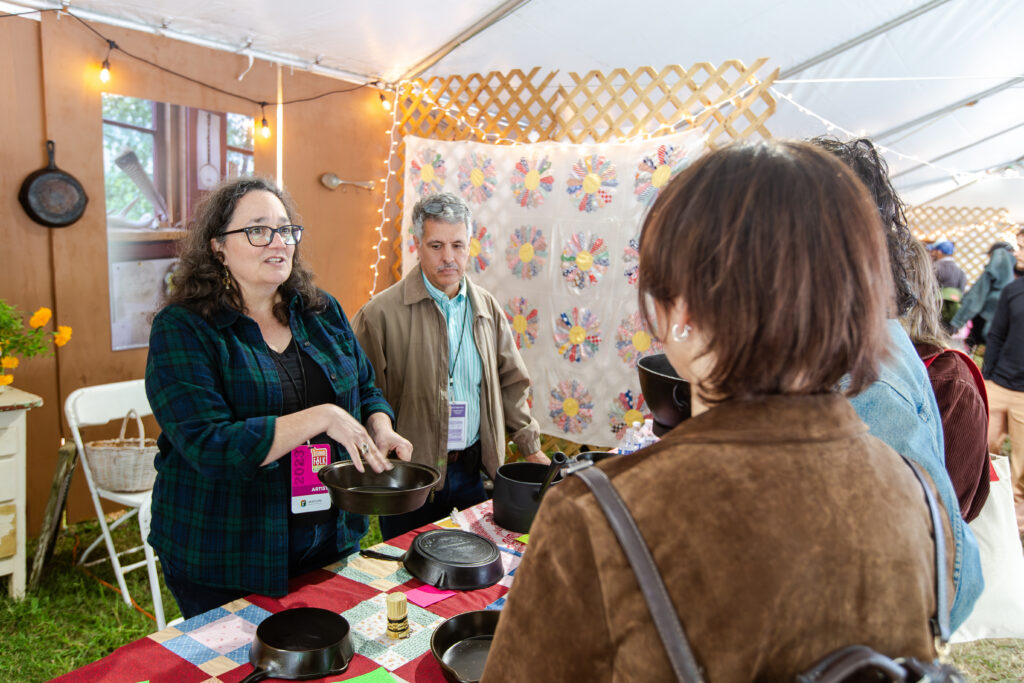
By Kaity Wasinger
Bristol, Virginia, was in lights October 14 and 15 in the Virginia Folklife Area of the 2023 Richmond Folk Festival.
Artists from the Virginia-Tennessee border city—known as the “birthplace of country music”—shared music and more. In the Appalachian Traditions demonstration tent, presented by Virginia Folklife, Mid Atlantic Arts staff joined festivalgoers to discover unique traditions of the Bristol region: fast cars, handmade home goods, and runway-ready fashions. Nearly all of the artists in the tent received a Greater Bristol Folk Arts & Culture Team Fellowship, funded by Mid Atlantic Arts’ Central Appalachia Living Traditions: Folk Arts and Culture Community Anchors initiative.
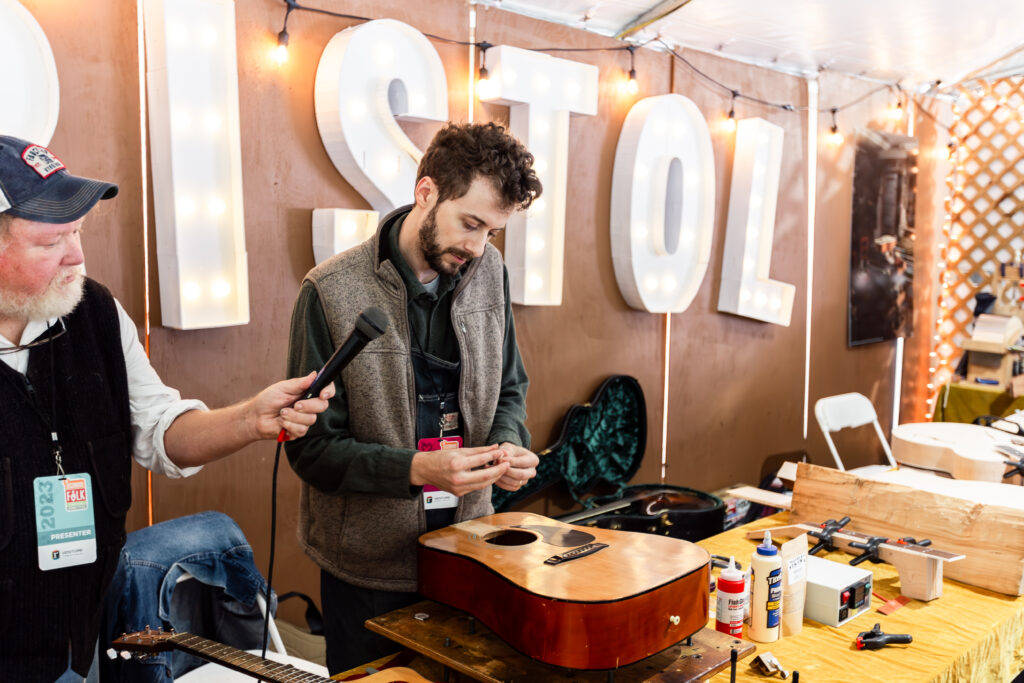
Display caption
Image: KT Vandyke, an instrument repairman from Bristol, demonstrates how to repair a cracked guitar. Credit: Nina Wilder/Virginia Humanities.
Displays by more than a dozen artists introduced traditional and evolving Appalachian crafts of the greater Bristol area. Artists Amanda Sprinkle (Abingdon, VA), Anna Mullins (Coeburn, VA), Erin Simons (Wytheville, VA), Jackson Cunningham (Mouth of Wilson, VA), Jesse Halverson (Bristol), John Alexander (Independence, VA), Katie Hoffman and Brett Tiller (Jonesborough, TN), KT Vandyke (Bristol), and Stephen Curd (Glade Spring, VA) demonstrated the wide variety of traditional arts in this Appalachian region. The Fleenor Family (Bristol) also brought their yellow dragster, which has reached speeds nearing 160 miles per hour on the Bristol Dragway.
Regional organizations including the Birthplace of Country Music Museum and The Crooked Road provided historical information—and a reason for Richmonders to visit the mountains.
Festival attendees enjoyed demonstrations in making Appalachian toys, repairing cracked guitars, maintaining your cast iron skillet, weaving and spinning, installing frets on an instrument, building a dulcimer out of cardboard, and making baskets and brooms.
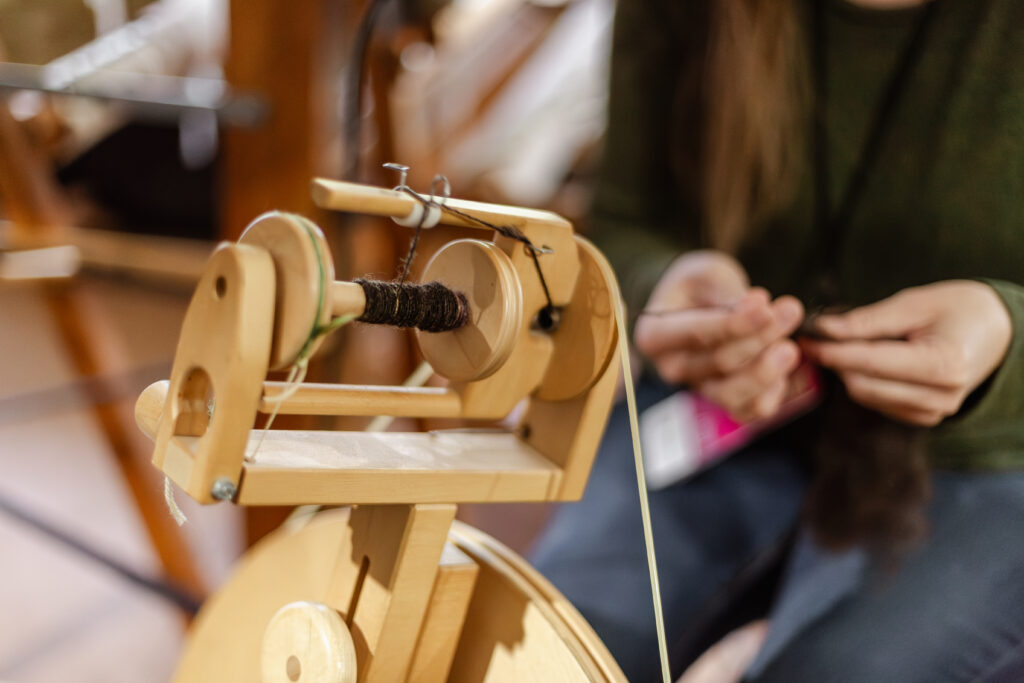
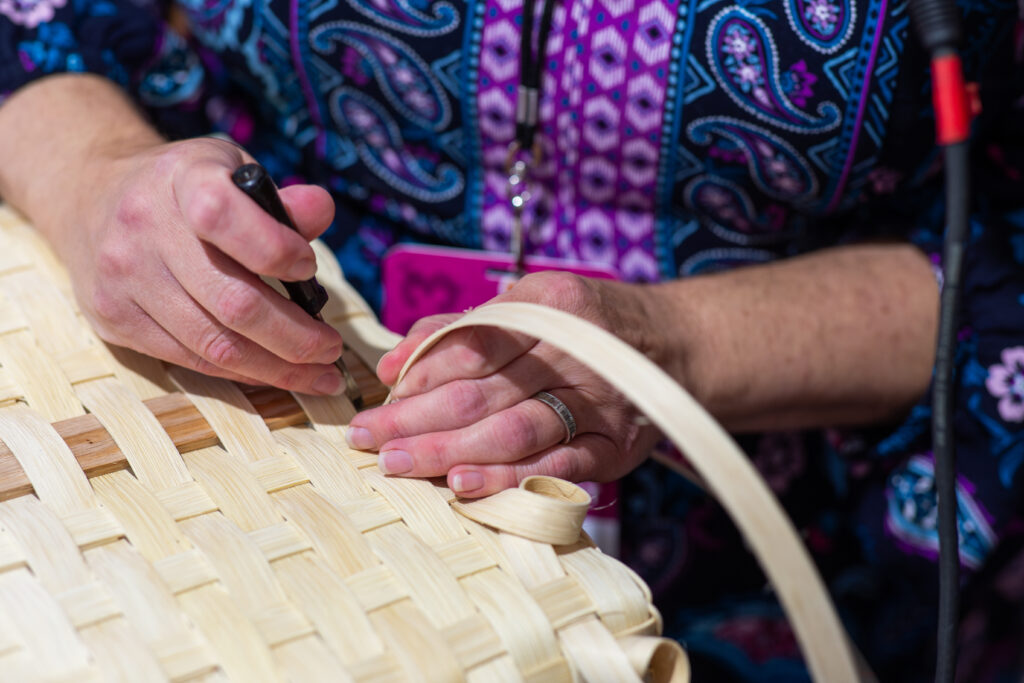
In addition to highlighting Bristol, artists from around Mid Atlantic Arts’ region were well-represented throughout the festival. Next-door to the Appalachian Traditions tent, the Center for Cultural Vibrancy Stage brought together traditional musicians from a variety of backgrounds. A “Virginia Meets the Virgin Islands” performance opened the stage on Saturday, where members of Richmond’s own Legendary Ingramettes played alongside Stanley Jacobs and the Ten Sleepless Knights, a Quelbe group from the U.S. Virgin Islands. Venture Richmond also received a Folk and Traditional Arts Community Projects grant to present the Ukranian ensemble Cheres at the festival.
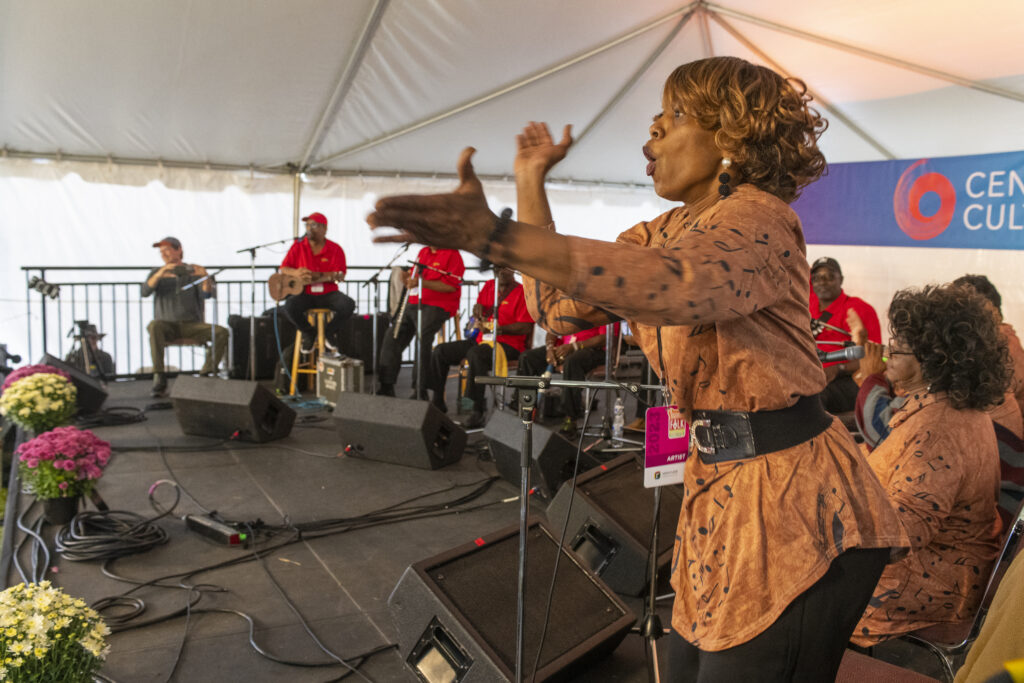
Bristol was represented on the Center for Cultural Vibrancy stage as well. Radio Bristol’s show Farm and Fun Time® held a live recording session, hosted by Bill and the Belles, which featured two duos from the region: bluegrass sweethearts Linda and David Lay and ballad singer Elizabeth LaPrelle with her Virginia Folklife apprentice, Elsa Howell. The “New Sounds of Bristol” showcase opened the stage on Sunday, featuring the next generation of regional musicians and hosted by Tyler Hughes of The Crooked Road. Roxanne McDaniel opened the set with a heartfelt pair of songs about growing up and leaving her small East Tennessee town. Pierceton Hobbs’ fiddle was followed by geonovah’s rapped verses and beats, and the set culminated in classic country music played by Jackson Cunningham, KT Vandyke, and Toni Doman.
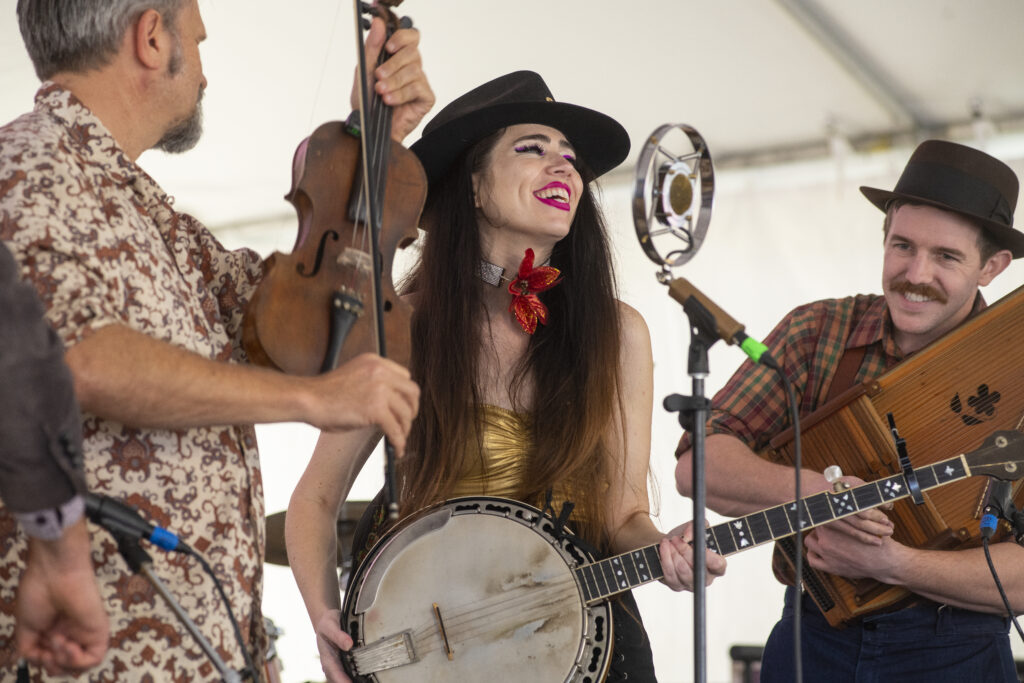
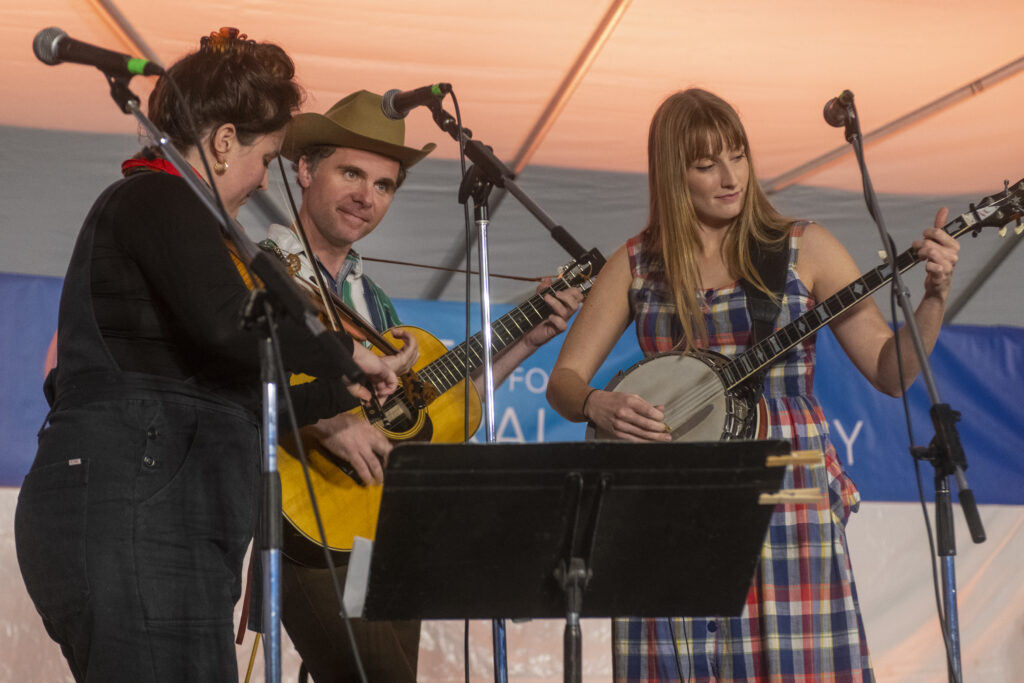
The Virginia Folklife Area experience blended old with new—these artists practice crafts that have been around for generations, but each transforms tradition in their own unique way. When we asked them about how traditions evolve, and what defines Appalachian art and culture today, the artists expressed similar ideas.
Several artists reflected on the diversity of Appalachian traditions, both past and present. Roxanne McDaniel spoke on enduring the difficulties of queer life in a small town. Her work today is helping to build an inclusive Appalachian community, one that she sees embodied in the dulcimer—an accessible instrument because of its affordability and how easy it is to learn how to play.
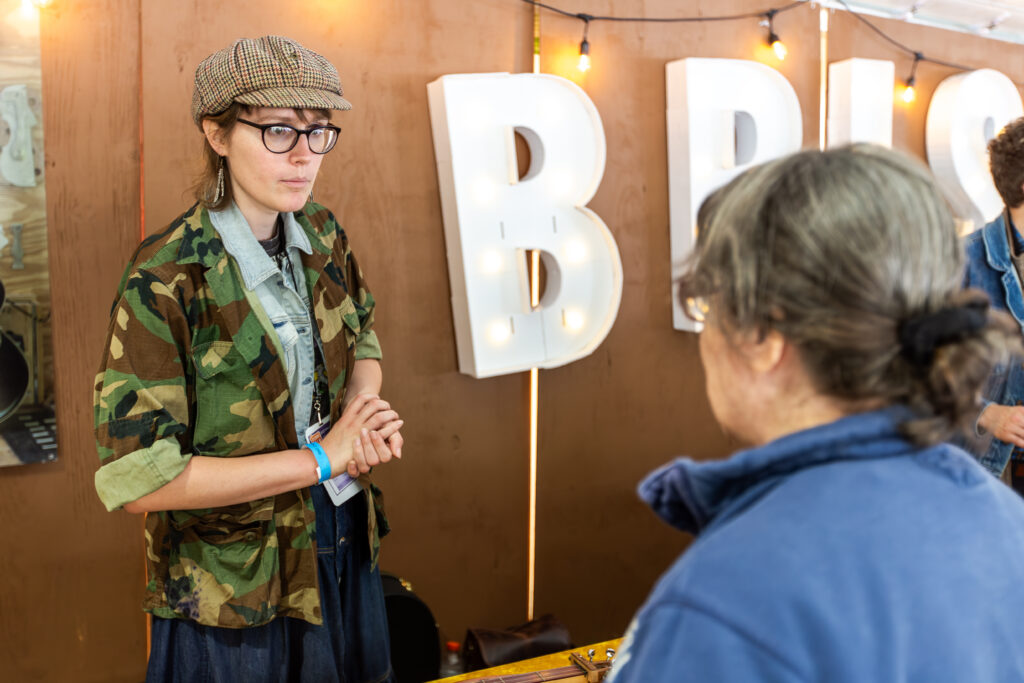
“People are taking the best of the old ways and bringing them into today to make meaningful art and expression and representation for Appalachians now,” Roxane shared. Rather than staying stagnant, she believes today’s Appalachian traditions “look to the future.”
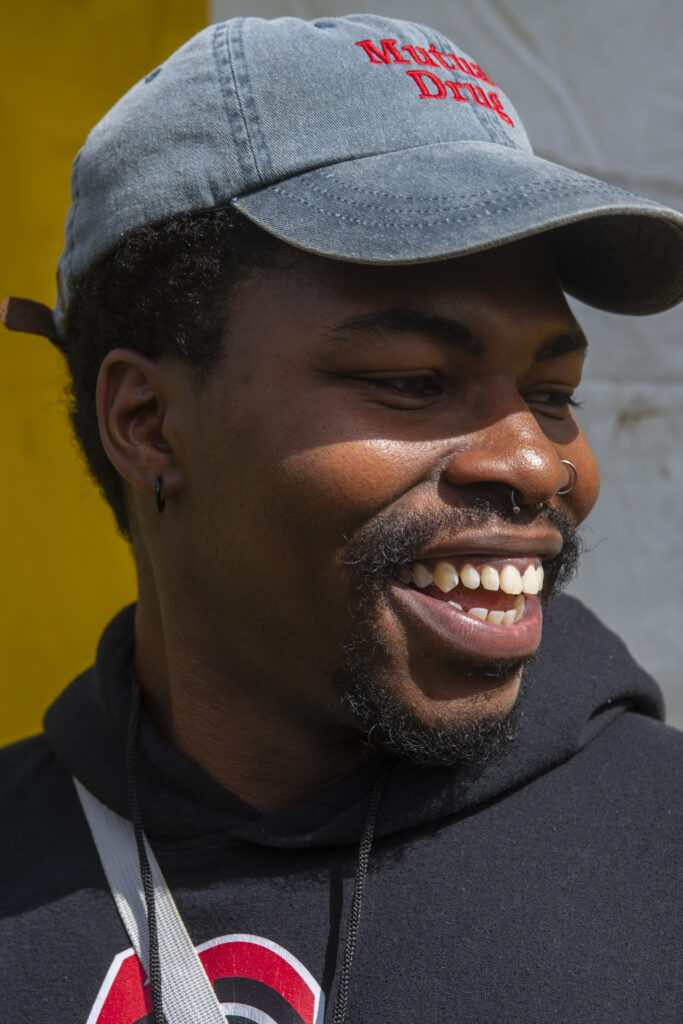
Geonoah Davis, a hip hop artist from Big Stone Gap, Virginia, who performs as geonovah, has also made it his mission to create a supportive community for artists who, like himself, do not fall into stereotypical Appalachian categories. He finds fulfillment in building support networks: “What gives me joy is creating and using what comes from it to help those around me,” he said.
Elsa Howell’s journey into old-time music was driven by the community she found in it. She grew up in Roanoke, Virginia, watching her father play in the local scene. “My dad brought me into the world of old-time music,” Elsa shared. “He taught me everything I know about guitar, and he never ceased to encourage me.”
Despite these family ties, Elsa shared that it was not always easy to see herself in the old-time community. She credits her mentor, Elizabeth LaPrelle, with showing her that there is a place for young women like her. Elizabeth made Elsa feel welcome and empowered, and, while still young, Elsa is ready to pass the favor forward.
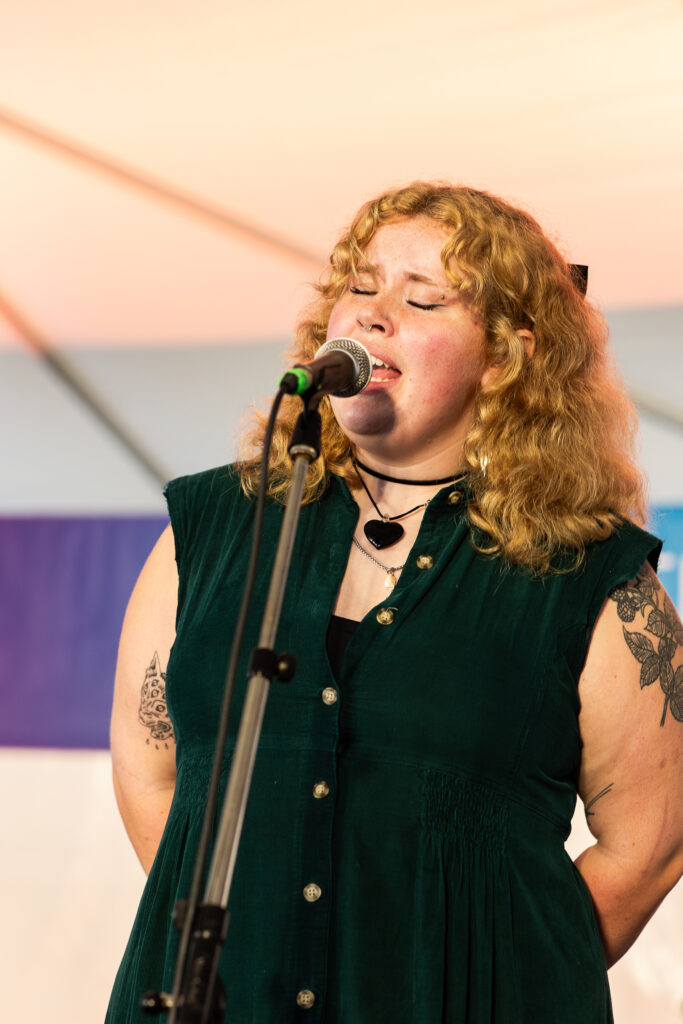
Throughout this weekend in the Virginia Folklife Area, Bristol’s unique take on Appalachian arts and culture was palpable. As shared at the Festival, a new generation of Appalachian artists continue to shape the traditional art forms of Bristol. Reflecting on the weekend, artist Erin Simons put it perfectly:
“I honestly can’t put into words yet what my heart is feeling after this weekend,” she shared, “but I can say I met and witnessed some of the most creative and humble people who embody the spirit of Appalachia. I feel honored to have been a part of it. We live and are surrounded by such a rich and beautiful place and people. I encourage you to take the time to get to know it better. Even if you have lived in it your whole life, I know from experience, there is so much more magic waiting for you to explore.”
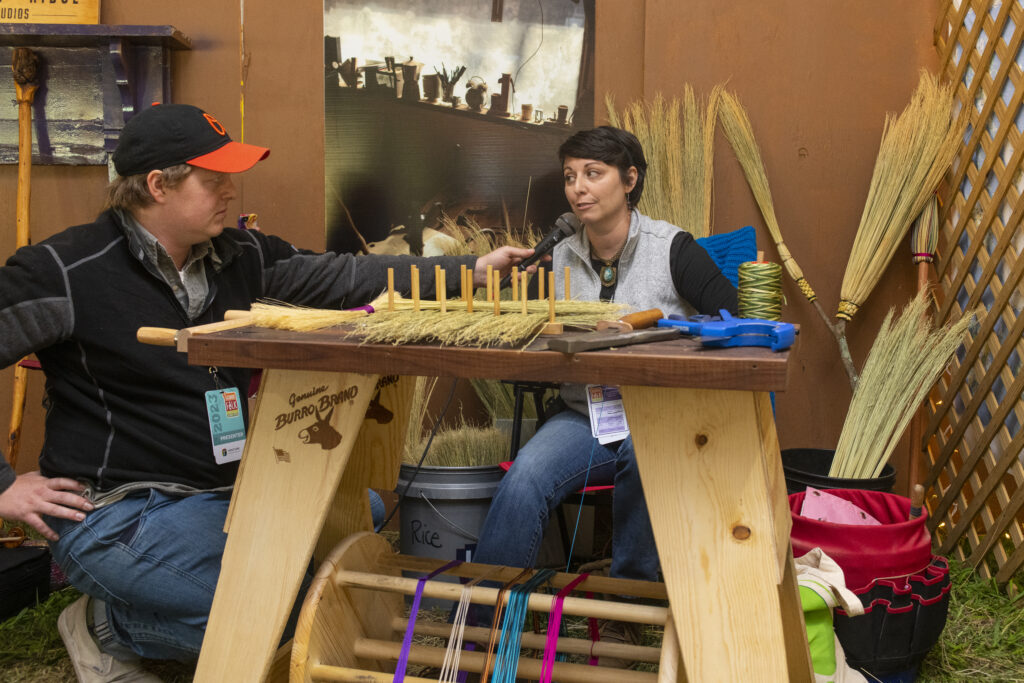
This story is also available on the Virginia Folklife Program website.